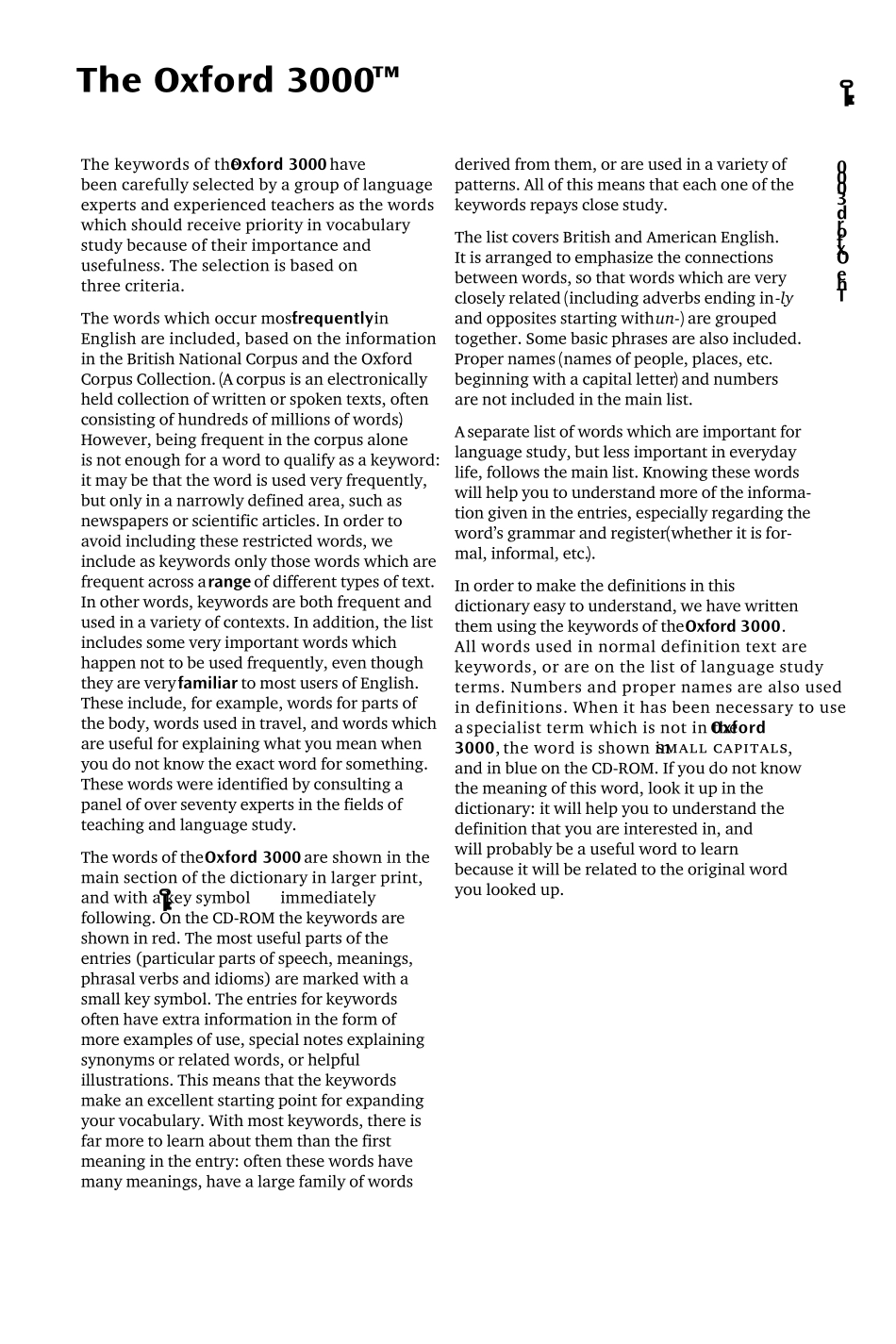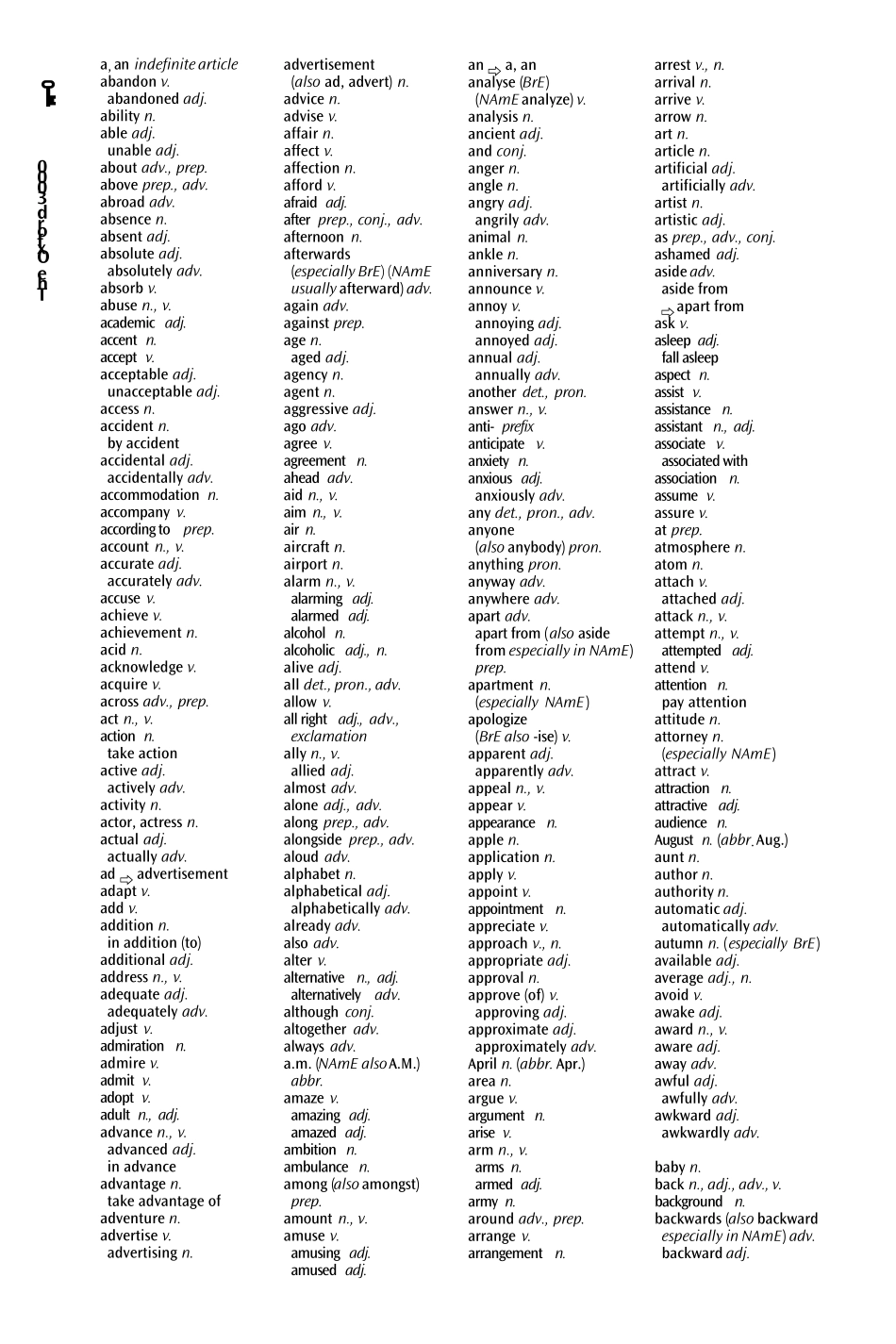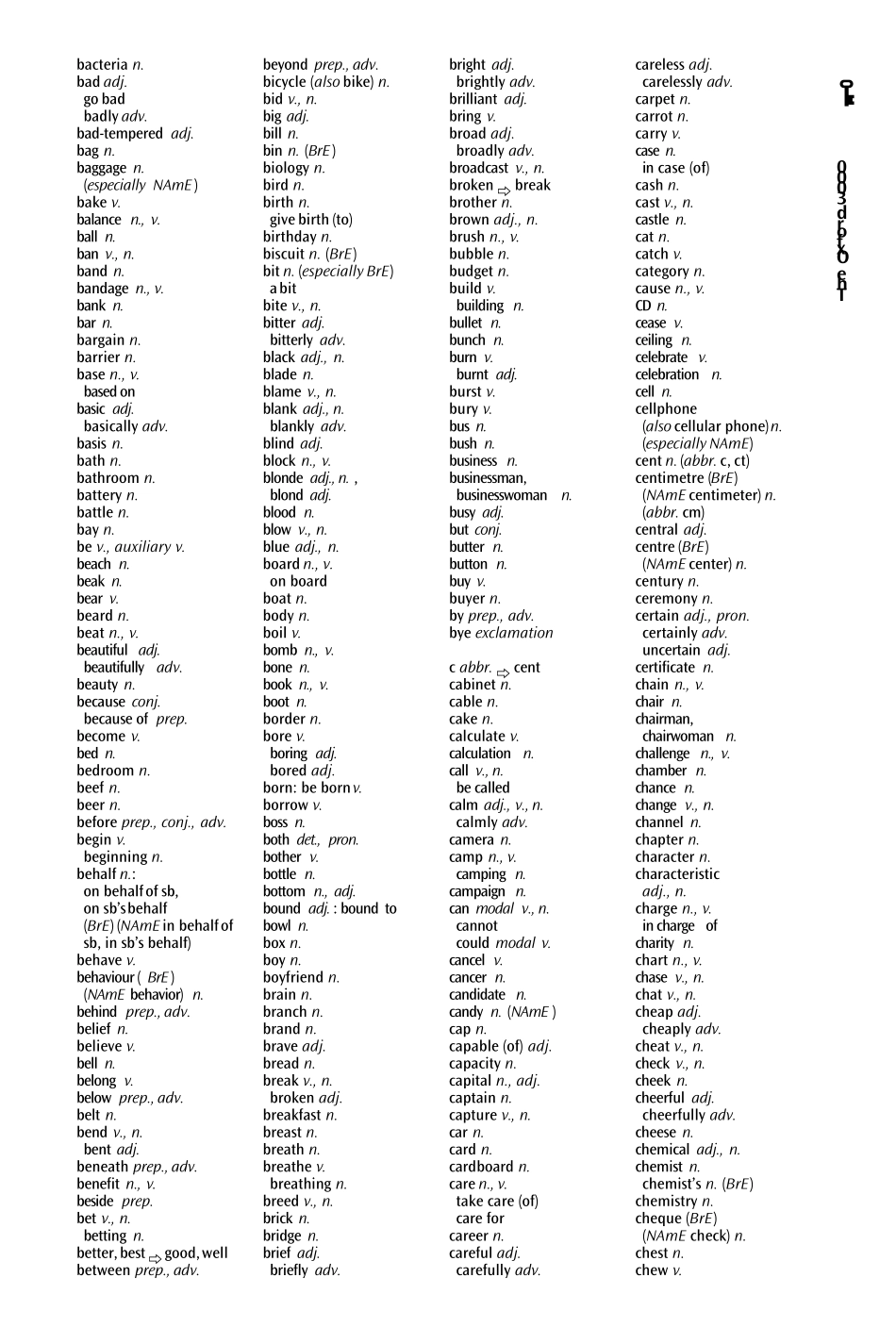TheOxford3000dThe Oxford 3000™The keywords of the Oxford 3000 have been carefully selected by a group of languageexperts and experienced teachers as the wordswhich should receive priority in vocabularystudy because of their importance andusefulness. The selection is based on three criteria.The words which occur most frequentlyinEnglish are included, based on the informationin the British National Corpus and the OxfordCorpus Collection. (A corpus is an electronicallyheld collection of written or spoken texts, oftenconsisting of hundreds of millions of words.)However, being frequent in the corpus alone is not enough for a word to qualify as a keyword:it may be that the word is used very frequently,but only in a narrowly defined area, such asnewspapers or scientific articles. In order toavoid including these restricted words, weinclude as keywords only those words which arefrequent across a range of different types of text.In other words, keywords are both frequent andused in a variety of contexts. In addition, the listincludes some very important words whichhappen not to be used frequently, even thoughthey are very familiar to most users of English.These include, for example, words for parts ofthe body, words used in travel, and words whichare useful for explaining what you mean whenyou do not know the exact word for something.These words were identified by consulting apanel of over seventy experts in the fields ofteaching and language study.The words of the Oxford 3000 are shown in themain section of the dictionary in larger print,and with a key symbolimmediatelyfollowing. On the CD-ROM the keywords areshown in red. The most useful parts of theentries (particular parts of speech, meanings,phrasal verbs and ...


